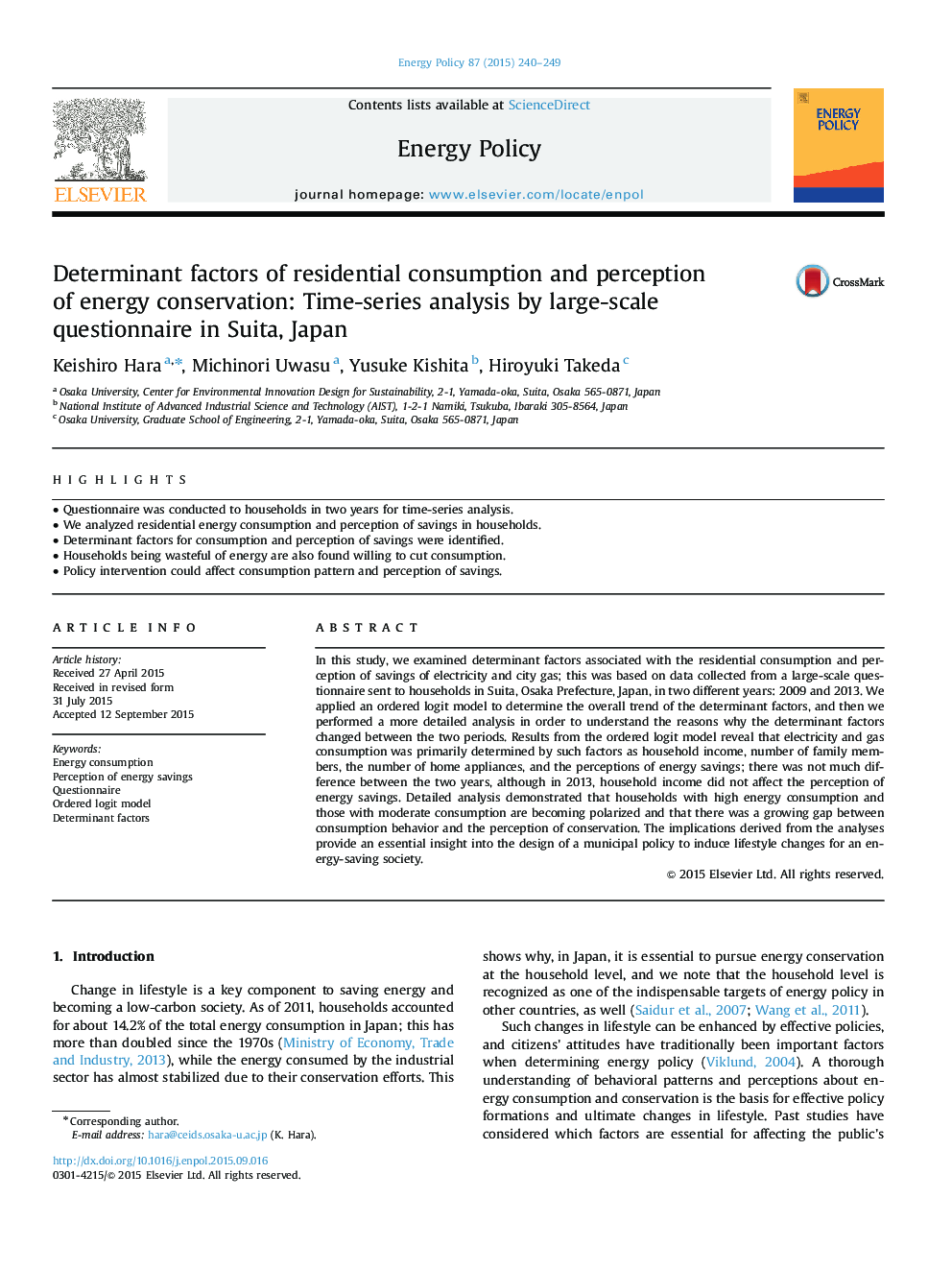| Article ID | Journal | Published Year | Pages | File Type |
|---|---|---|---|---|
| 7400493 | Energy Policy | 2015 | 10 Pages |
Abstract
In this study, we examined determinant factors associated with the residential consumption and perception of savings of electricity and city gas; this was based on data collected from a large-scale questionnaire sent to households in Suita, Osaka Prefecture, Japan, in two different years: 2009 and 2013. We applied an ordered logit model to determine the overall trend of the determinant factors, and then we performed a more detailed analysis in order to understand the reasons why the determinant factors changed between the two periods. Results from the ordered logit model reveal that electricity and gas consumption was primarily determined by such factors as household income, number of family members, the number of home appliances, and the perceptions of energy savings; there was not much difference between the two years, although in 2013, household income did not affect the perception of energy savings. Detailed analysis demonstrated that households with high energy consumption and those with moderate consumption are becoming polarized and that there was a growing gap between consumption behavior and the perception of conservation. The implications derived from the analyses provide an essential insight into the design of a municipal policy to induce lifestyle changes for an energy-saving society.
Related Topics
Physical Sciences and Engineering
Energy
Energy Engineering and Power Technology
Authors
Keishiro Hara, Michinori Uwasu, Yusuke Kishita, Hiroyuki Takeda,
